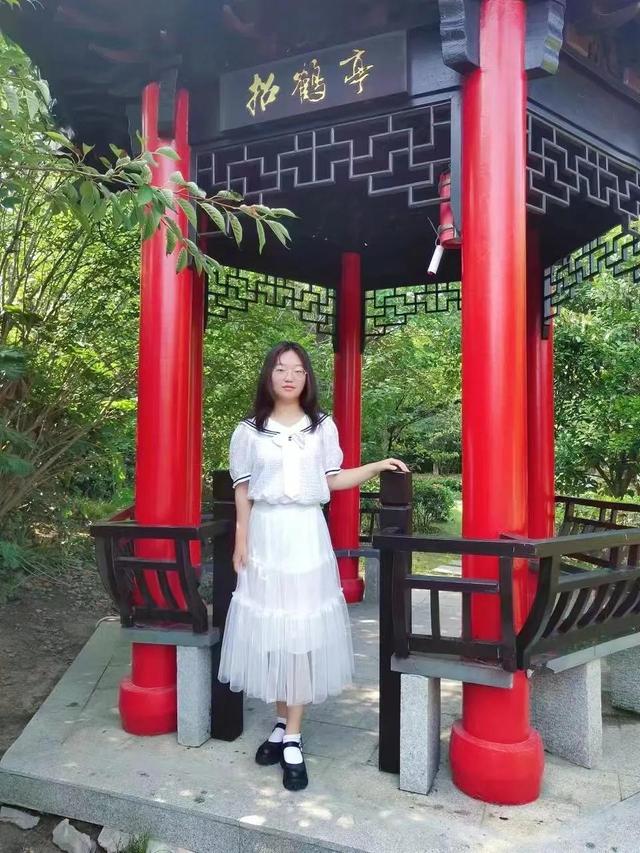怎样在国外读书(双语怎样读书)
How Should One Read a Book?
怎样读书
Virginia Woolf
V. 吴尔夫

怎样读书
It is simple enough to say that since books have classes – fiction, biography, poetry – we should separate them and take from each what it is right that each should give us. Yet few people ask from books what books can give us. Most commonly we come to books with blurred and divided minds, asking of fiction that it shall be true, of poetry that it shall be false, of biography that it shall be flattering, of history that it shall enforce our own prejudices. If we could banish all such preconceptions when we read, that would be an admirable beginning. Do not dictate to your author; try to become him. Be his fellow-worker and accomplice. If you hang back, and reserve and criticize at first, you are preventing yourself from getting the fullest possible value from what you read. But if you open your mind as widely as possible, then signs and hints of almost imperceptible fineness, from the twist and turn of the first sentences, will bring you into the presence of a human being unlike any other. Steep yourself in this, acquaint yourself with this, and soon you will find that your author is giving you, or attempting to give you, something far more definite. The thirty-two chapters of a novel – if we consider how to read a novel first – are an attempt to make something as formed and controlled as a building: but words are more impalpable than bricks; reading is a longer and more complicated process than seeing. Perhaps the quickest way to understand the elements of what a novelist is doing is not to read, but to write; to make your own experiment with the dangers and difficulties of words. Recall, then, some event that has left a distinct impression on you – how at the corner of the street, perhaps, you passed two people talking. A tree shook; an electric light danced; the tone of the talk was comic, but also tragic; a whole vision, an entire conception, seemed contained in that moment.
说来容易:既然书有各种各样——小说、传记、诗歌——那我们就应该该把它们分门别类,并且各按其类来汲取每本书理应给予我们的内容。然而,很少人读书时想过书本能够提供些什么的问题。最普通的现象是,我们拿起书本时头脑不清醒,目标不一致,我们要求小说叙述真人实事,要求诗歌表现虚假,要求传记给人捧场,要求历史证实我们自己的偏见。如果我们能在打开书本之前先驱除掉这些先入为主的看法,那将是个值得庆幸的良好开端。不要去指挥作者,要设身处地去替他设想,当他的合作者或同谋。如果你一开始便采取退缩矜持、有所保留或指指点点的态度,那你就在为自己设置障碍,使自己不能充分地从所阅读的书本中获到益处。然而,如果你没有先入之见,虚怀若谷,那么,打开书本,隐晦曲折的字里行间,难以察觉的细微迹象和暗示便会向你展示一个与众不同的人。深入进去,沉浸其中,熟谙这一切,你会很快发现,书的作者正在,或努力在给予你一些十分明确的东西。一部小说——如果我们先考虑一下怎样阅读小说的话——要有32个章节,这道理实际上跟建造有形有状的楼房完全一样:只不过文字不像砖块看得见摸得着;阅读比起观看是一个更漫长更复杂的过程。也许,要懂得作者写作过程中的要素,最简便的办法不是读而是写,亲自动手对字句的艰难险阻进行试验。回想一件曾经给你留下深刻印象的事情——也许在大街的拐角处有两个人在聊天,你走过他们的身边。一棵树摇晃起来,一道电光飞舞而过,他们聊天的口气颇有喜剧味道,但也带悲剧色彩,那一瞬间似乎包含了一个完整的意象,一种完整的概念。
But when you attempt to reconstruct it in words, you will find that it breaks into a thousand conflicting impressions. Some must be subdued; others emphasized; in the process you will lose, probably all grasp upon the emotion itself. Then turn from your blurred and littered pages to the opening pages of some great novelist – Defoe, Jane Austen, Hardy. Now you will be better able to appreciate their mastery. It is not merely that we are in the presence of a different person – Defoe, Jane Austen, or Thomas Hardy – but that we are living in a different world. Here, in Robinson Crusoe, we are trudging a plain high road; one thing happens after another; the fact and the order of the fact is enough. But if the open air and adventure mean everything to Defoe, they mean nothing to Jane Austen. Hers is the drawing-room, and people talking, and by the many mirrors of their talk revealing their characters. And if, when we have accustomed ourselves to the drawing-room and its reflections, we turn to Hardy, we are once more spun around. The moors are round us and the stars above our heads. The other side of the mind is now exposed – the dark side that comes uppermost in solitude, not the light side that shows in company. Our relations are not towards people, but towards Nature and destiny. Yet different as these worlds are, each is consistent with itself. The maker of each is careful to observe the laws of his own perspective, and however great a strain they may put upon us they will never confuse us, as lesser writers so frequently do, by introducing two different kinds of reality into the same book. Thus to go from one great novelist to another – from Jane Austen to Hardy, from Peacock to Trollope, from Scott to Meredith – is to be wrenched and uprooted; to be thrown this way and then that. To read a novel is a difficult and complex art. You must be capable not only of great finesse of perception, but of great boldness of imagination if you are going to make use of all that the novelist – the great artist – gives you.
然而,你动手用文字来重新构造时,你发现这一切变成了千百个互相冲突的印象。有的要淡化,有的要突出;在写的过程里,你可能会失去你想捕捉的情感。这时候,放下你写得稀里糊涂颠三倒四的东西,打开某些大小说家的小说读一读——笛福、简·奥斯丁、哈代。现在,你能欣赏他们的匠心功力了。我们不仅面临一个与众不同的人——笛福、简·奥斯丁或托马斯·哈代——我们还生活在一个不同的世界里。在《鲁滨逊飘流记》里我们是在一条普普通通的公路上跋涉前进;只要事实和事实的先后次序便足够了。然而,如果说笛福看重的是野外生活和冒险行动,它们对简·奥斯丁来说却毫无意义。客厅才是她的天地,还有人们的谈天说地,她通过各种各样的谈话的镜子来揭示他们的性格。当我们习惯于这个客厅及其中闪烁多姿的映像以后又转而去阅读哈代,那我们又会晕头转向。我们周围是沼泽,头顶上是星星。人性的另外一面被揭示了——孤独中被突出表现的黑暗的一面,而不是与朋友相处时的光明的一面。我们不是跟人而是跟大自然、跟命运发生关系。然而,这些世界虽然互不相同,它们各自却都统一谐调。每个世界的创造者都小心翼翼地遵守各自透视事物的法规,而且,不管他们给我们以多大负担,他们从来不会使我们感到迷惑,不像有些二流作家常常在同一本书里介绍两种完全不相同的现实,把读者弄得无所适从。因此,从一位伟大的小说家到另一位——从简·奥斯丁到哈代,从皮科克到特罗洛普,从司各特到梅瑞狄斯——我们都要经受一场脱胎换骨、背井离乡的痛苦,被扔过来又赶过去。读小说是一门艰难复杂的艺术。你不仅要有高明的洞察秋毫的本事,你还要能够敢于进行大胆的想象,如果你想充分利用伟大的小说家——伟大的艺术家——所给予你的一切。
(陶洁 译)
,免责声明:本文仅代表文章作者的个人观点,与本站无关。其原创性、真实性以及文中陈述文字和内容未经本站证实,对本文以及其中全部或者部分内容文字的真实性、完整性和原创性本站不作任何保证或承诺,请读者仅作参考,并自行核实相关内容。文章投诉邮箱:anhduc.ph@yahoo.com






